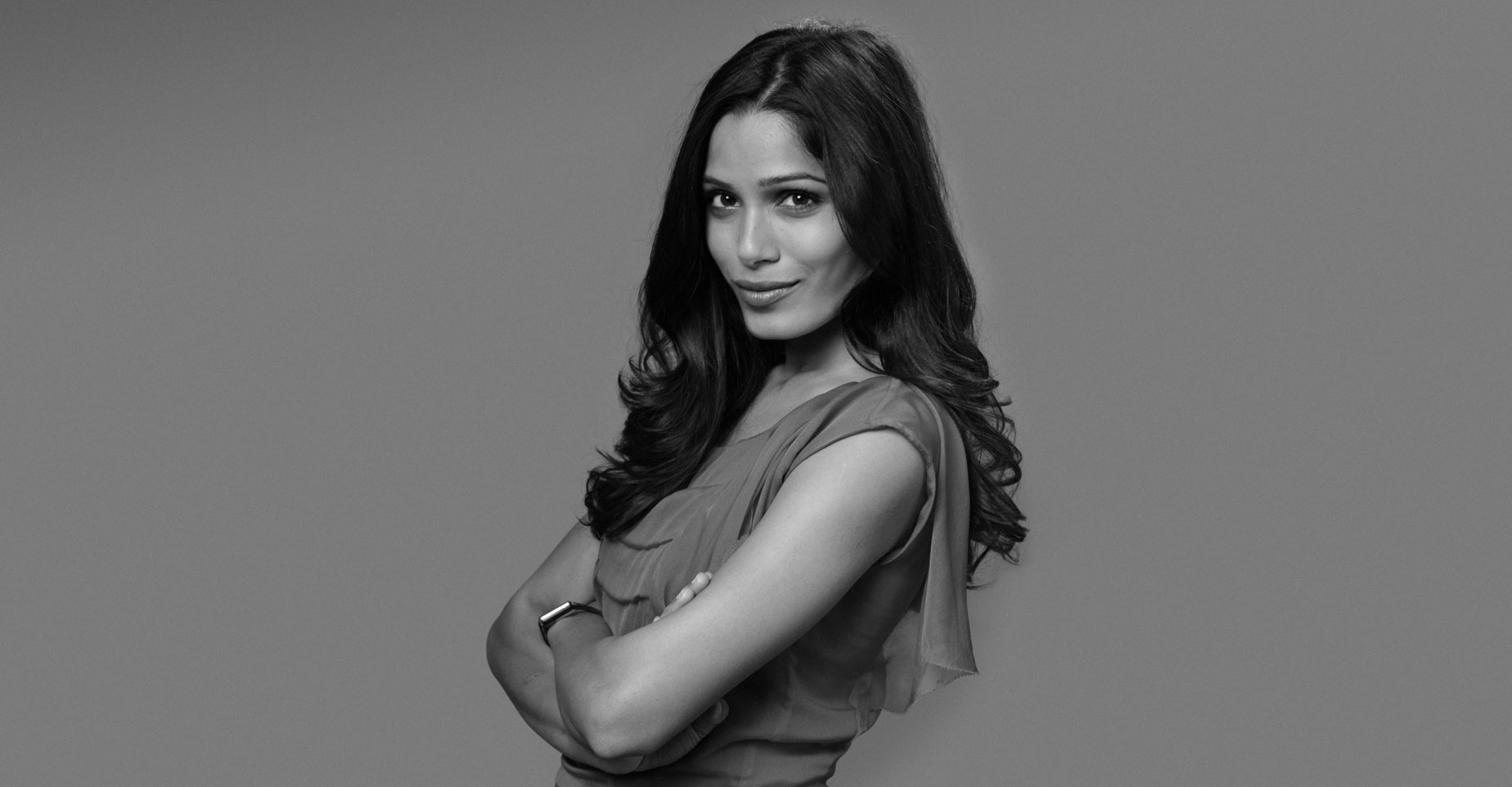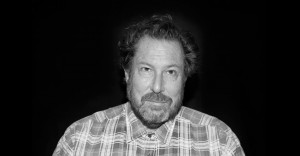Ms. Pinto, you burst onto the international stage in 2008 with Slumdog Millionaire and soon afterwards worked with directors like Woody Allen, Julian Schnabel, and Michael Winterbottom. But since 2011 you have only appeared in one feature film. Where’ve you been?
I have been pursuing my passion for telling stories as a producer. And I have to say, it’s very trying because getting an independent film off the ground in today’s day and age is a lot harder than one might think. You might think there’s so much money rolling in from everywhere, but it’s not rolling into the projects you want to make. It’s rolling into the Hunger Games franchise and Transformers. Since 2012 I’ve been quite busy producing two films and a documentary film which is going to launch itself as a campaign for girl’s rights called Girl Rising.
What made you want to do that rather than push your own career?
Well if I can secure a future for the future, then my future also gets better. I have asked myself, “Why am I producing a documentary film which has nothing for me to gain in terms of money or in terms of popularity or exposure?” But then I think about it and go, “Well, that’s not what life is about.” If the world opens up to the idea that every girl should be educated, then we’re fighting less against the system. We’re creating the work force right now to go out there and make it easier for my children, my grandchildren, my grandchildren’s children. So for me it’s like a vested interest, man! It’s definitely not going to be gratifying in the present, but that’s fine. It’s definitely not a career decision. It’s more of a human decision.
Recently there’s been a kind of backlash against the idea of celebrity charity, for example with Band Aid. How do you avoid that?
Sometimes it does get a bad rap because people just do it for publicity or for the sake of changing a bad reputation, like, “Let me save a child in Africa and I’ll have a different image.” So yeah, it’s a real problem when that happens and people don’t trust that you’re really out there supporting a cause that comes from a passionate place. For me, I really have not been interested in any kind of publicity whatsoever. I can talk about girls’ education and girls’ rights for hours and hours and hours, but I will only do it if someone sitting in front of me will understand why I’m doing it.
As an advocate for women’s rights did you have any hesitation playing a stripper in Bruno Mars’ music video for “Gorilla?”
No, that’s what I do, I’m an actor. I had trained for a year as a dancer and then Bruno asked me about this video and it was a character that I have never been offered in a film before. I didn’t care about any backlash because everybody I knew loved it. I even shared it with my mom and my dad and they understood that it was just part of my character. They’re not too bothered by it. If you’re bothered by it, change the channel.
Do you feel like you’re fighting against conservative social norms, especially because you grew up in India?
No, I find myself fighting against things that are common amongst the entire women’s race, like fighting for sensible roles in films. Why are the only two lines that this character is saying in the film “save me” or “help me?” Why are we so helpless in films? We’re not so helpless in real life, so why are we so helpless in films? That’s the only thing I find myself fighting against, but not social norms that someone else feels that they can dictate. The kind of films my dad made me watch growing up were all women-centric films…
Did he do that on purpose?
I don’t know if it was his conscious decision. I don’t think so, because he’s not the type of person who premeditates things. But Mirch Masala was definitely one of my favorite films growing up and it was in college that I really started getting exposed to world cinema and fell madly in love with Wong Kar-wai and that’s when I realized that I don’t want the films I make to be just for India or just for America. I really would love for the films, or anything that I do, to be something that the world can enjoy. I always wanted something on an international level. But I remember always telling my sisters that there was absolutely no way I would strike it big England or America or anywhere else in the world just because they’re not open to India.
It’s true, the international success of Slumdog Millionaire was unprecedented for a film with an all-Indian cast. Even though that was your dream, was it a struggle for you to be thrown onto the world stage so suddenly?
I don’t think it was a struggle at all, actually. I absolutely enjoyed it. A lot of it was also like I was on a drug, the most beautiful drug ever. It was my version of LSD or ecstasy. I was just looking around going, “That tree is the most beautiful tree I’ve ever seen in my life!” You’re just riding the wave and you don’t know where you’re going to land when it settles, but while you are riding the wave you just put your best self out there and enjoy it. You’re going to land somewhere and you’re going to have to move from there. I enjoyed the high, though.
Which you’ll probably never have again since it was the first time…
Exactly, so that’s why I didn’t want to waste any time struggling with it. Risks are very important to me. It’s the only thing that will define the next career move or else I’ll be plateauing. I’ll be completely stale if I don’t take risks. And that’s not just my career. In music, writing, producing, you have to take risks. The formula gets old after a while and people start seeing through it. I love what Slumdog Millionaire did for me and my career, but it also did give people this image like, “Here comes sunshine!” To which I just go, “Hmm, no.”
I think the perception of Indian actors in the western world is generally like that for some reason.
Yeah, I think so. Family values, demure and poised, and… ugh, God. When I go into a meeting, or put myself on tape for an audition, I think that it’s very, very important for me to make sure that if the person who’s seeing it already has the idea that this is a coy, shy girl, that I break that perception. Break it with the first line that comes out of my mouth because otherwise they’re going to watch the whole audition or sit through the entire meeting thinking, “Oh, such a sweet girl, but I don’t really think so.”
So you go in talking like Ray Winstone?
I used to never abuse in meetings before, but I abuse in every day life. My parents don’t like it, but I realized that that’s just me so now I do – unless there are children around or something. Then I don’t want to be going, “Fuck this, fuck that, and that fucking piece of shit…” But I’m just myself. I want the person in front of me to know that I’m only human. And that comes with confidence, believe it or not. And questioning, “Who am I? Am I comfortable with who I am?” Only when you’re comfortable with who you are can you present yourself as your true self. It took a while, but now that I’m there I’m very comfortable.
Return to Top

Short Profile
Name: Freida Selena PintoDOB: 18 October 1984
Place of birth: Mumbai, Maharashtra, India
Occupation: Actress





















Comments
write a comment, read comments